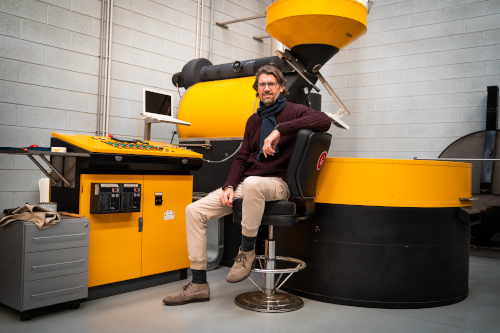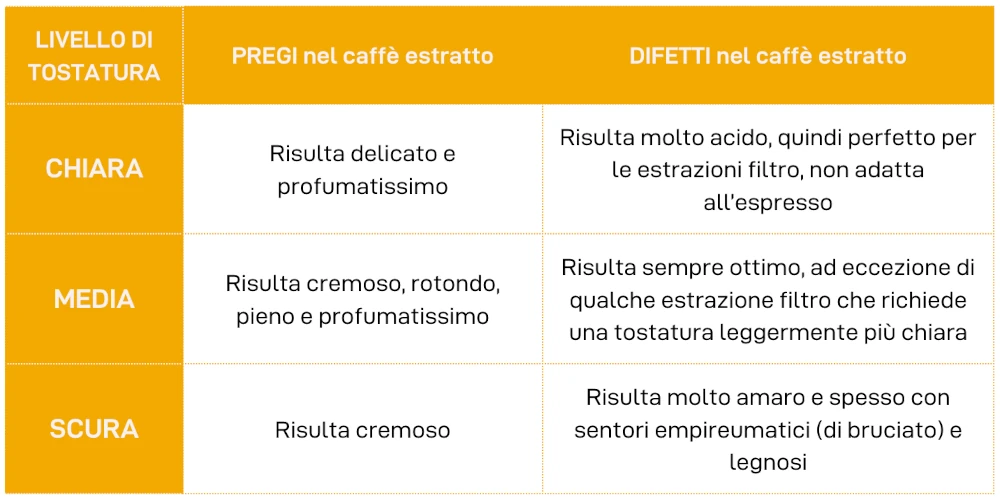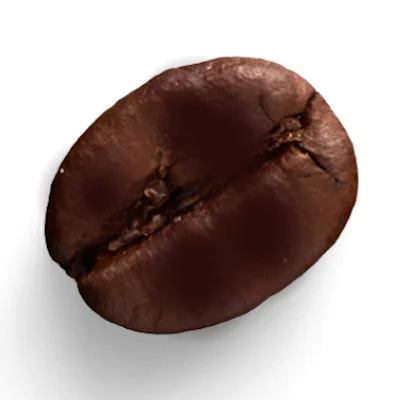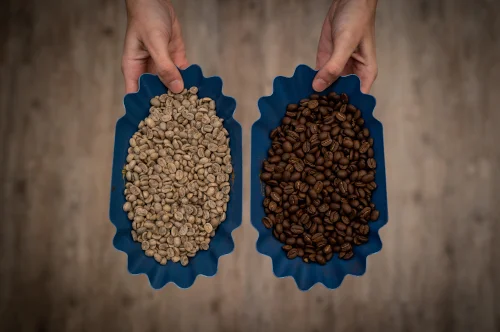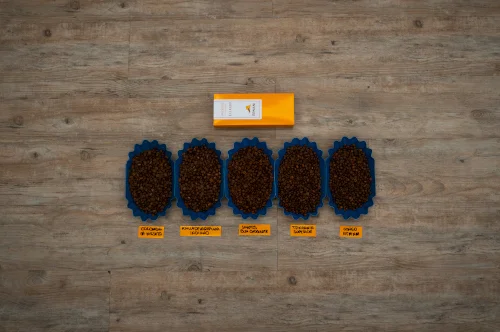All of us, or almost all of us, are habitual consumers of coffee. We appreciate it for its energy charge and for its moments of conviviality.
But how many of us really know coffee? And above all: how many of us know the differences between an artisan coffee and an industrial one?
Let’s start by saying that when we speak of “artisanal” and “industrial” we are referring to the actual roasting process,i.e. the most delicate phase of the coffee supply chain, which involves chemical-physical mutations of the green bean, to lead it to develop its aromatic profile to its best and allow the same to get in the cup.
I’m also sure that any of you have happened to enter a bar to order an espresso, drink it and realize that it is simply very bitter, with hints of stale, acrid and burnt.
There are three main reasons why this happens:
- Poor quality raw material
- Incorrect toasting
- Wrong grind
Choose the raw material
Starting from point one, the coffee goes through various stages before reaching the roaster: cultivation, processing of green beans, drying of the same and the transport.
To have a good extracted product, as it is easy to imagine, you need a good starting product, as in everything in life!
As to coffee this means beans without physical defects, as homogeneous as possible in terms of density and size, with a wide range of fine aromatics and without any negative notes to the nose or taste, such as hints of rubber, mould, tar, ash, etc.
If the beans pass all these tests and show no defects, as well as an excellent taste profile, then the raw material is of quality.
The choice of green beans varies greatly depending on whether it is a large multinational or a small local roaster.
The small craftsman, as already mentioned at the beginning, has love, passion and knowledge for his work. His main objective is to be able to do his best to offer a cup that surprises his own clients.
The priority therefore is not the quantity of coffee sold, but its constant and very high quality. As a result, it tends to purchase micro-lots of fine and/or certified Specialty Coffees.
Instead, the industry has as its priority not quality, but quantity, rightly having to support an imposing organizational structure. Profit is therefore the only thing sought.
And if you think about it, this is not the case only for coffee, but the rule applies to any product, good or service on a market.
So if you’re looking for quality, you shouldn’t look for mass-produced products.
All this attention to the raw material also translates into a closer relationship with the plantation, and therefore greater control over the quality also in the processing and transport phases of the beans.
Industries on the contrary need large quantities of raw material and their ownworry is therefore to ensure the required variety, by mixing beans from all over the world,resetting inevitably the traceability and valorisation of a given plantation.
In short, quality is not only gustatory, but includes every aspect of each phase.
If you want to know more, subscribe to the newsletter and receive the free guide on “Recognizing a quality coffee, before, during and after tasting” + DISCOUNT Code.

